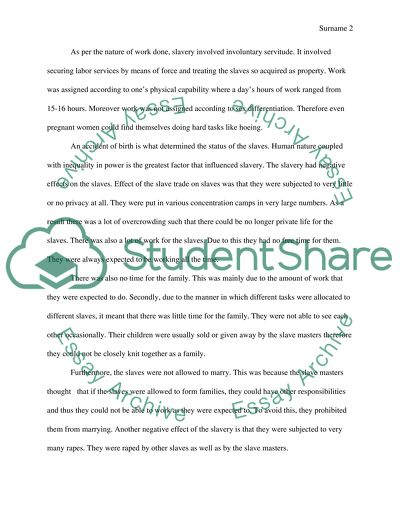Cite this document
(“African American history assessing the antebellum slavery Essay”, n.d.)
Retrieved from https://studentshare.org/history/1393631-african-american-history-assessing-the-antebellum-slavery
Retrieved from https://studentshare.org/history/1393631-african-american-history-assessing-the-antebellum-slavery
(African American History Assessing the Antebellum Slavery Essay)
https://studentshare.org/history/1393631-african-american-history-assessing-the-antebellum-slavery.
https://studentshare.org/history/1393631-african-american-history-assessing-the-antebellum-slavery.
“African American History Assessing the Antebellum Slavery Essay”, n.d. https://studentshare.org/history/1393631-african-american-history-assessing-the-antebellum-slavery.


